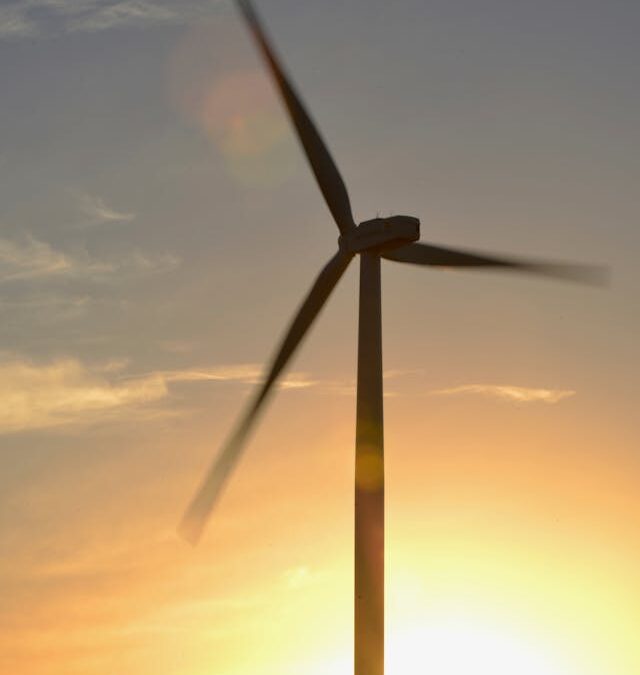2023 was the warmest year on record since the National Oceanic and Atmospheric Administration (NOAA) started tracking the climate 174 years ago. Now, as our world is increasingly defined by environmental concerns, broad-scale clean energy is emerging as a beacon of hope in the fight against climate change. Let’s consider the significance of clean energy, exploring its transformative potential and why it matters now more than ever.
The Impact of Fossil Fuels on Climate Change
For decades, our reliance on fossil fuels has exacted a heavy toll on our planet. The burning of coal, oil, and natural gas releases greenhouse gases such as carbon dioxide and methane into the atmosphere, trapping heat and contributing to global warming. This, in turn, has led to a host of adverse effects, from rising temperatures and melting ice caps to more frequent and severe weather events.
Furthermore, the combustion of fossil fuels not only releases greenhouse gases, but also emits harmful pollutants such as sulfur dioxide, nitrogen oxides, and particulate matter. These pollutants contribute to air pollution, posing serious health risks to humans and wildlife alike.
Additionally, the extraction and transportation of fossil fuels often result in environmental degradation, including habitat destruction, water pollution, and soil contamination. In other words, fossil fuels have contributed to a cascading effect of damage to our environment.
Understanding Clean Energy Sources
Amidst these environmental challenges, renewable energy sources offer a promising alternative to fossil fuels. Solar and wind power harness the natural energy of the sun and wind, respectively, to generate electricity without emitting greenhouse gases or harmful pollutants. Additionally, hydroelectric and geothermal energy provide clean and reliable sources of power, further diversifying our energy mix.
But small-scale adoption hasn’t done much to move the needle. Something bigger is needed. Back in 1992, the U.S. government introduced the Energy Policy Act, legislation that allowed for the deregulation of energy. Essentially, this new law meant utility companies were forced to open up the supply lines in their infrastructure to third-party energy providers, creating a competitive market where the consumer has a choice. This opened the door to more climate-friendly energy options, as well.
Some homeowners and business owners have already embraced clean energy and hoped to reduce their environmental footprint through modifications. But with energy deregulation, companies like MPower Energy can provide energy from clean sources to consumers.
Clean Energy’s Role in Reducing Carbon Emissions
One of the most significant benefits of clean energy is its role in reducing carbon emissions and combating climate change. By replacing fossil fuels with renewable energy sources, we can significantly reduce our carbon footprint and limit the impact of global warming. Transitioning to clean energy is essential to achieving the targets set forth in international agreements such as the Paris Agreement and preventing the most catastrophic effects of climate change.
The benefits of transitioning to clean energy are manifold. Not only does it help mitigate climate change by reducing greenhouse gas emissions, but it also improves air quality, protects ecosystems, and preserves natural resources. Moreover, investing in clean energy creates green jobs and economic opportunities, stimulating innovation, growth, and prosperity in communities around the world.
In the U.S., the Department of Energy has invested in alternative energy sources to provide broader commercial support. For example, the Wind Energy Technologies Office focuses on investing in wind energy research, development, and deployment. This includes advancements in offshore, land-based, and distributed wind systems aimed at reducing the overall cost of wind energy. Additionally, the office works to promote environmentally conscious deployment methods while facilitating the integration of wind energy into the electric grid at high levels.
The Department of Energy also invests in hydropower and marine energy, domestic geothermal energy, biomass energy, nuclear energy, and hydrogen and fuel cells. By transitioning to these clean energy sources, we can significantly reduce the amount of carbon dioxide and other greenhouse gases released into the atmosphere during electricity generation, transportation, heating, and industrial processes. This reduction in carbon emissions is essential for combating climate change and mitigating its adverse impacts on the environment, public health, and global economies.
Why Clean Energy Matters for the Future
The transition to clean energy is not just about reducing emissions and combating climate change. It is about building a more sustainable and resilient future for generations to come. Clean energy offers the promise of long-term environmental sustainability, climate resilience, and global leadership in the clean energy transition. By embracing clean energy solutions, we can protect our planet, safeguard our health and well-being, and create a brighter and more prosperous future for all.
Clean energy holds the key to addressing the dual challenges of climate change and energy security. By transitioning to renewable energy sources and embracing energy efficiency measures, we can reduce our carbon footprint, improve air quality, and build a more sustainable and resilient future. It is imperative that we support clean energy initiatives and policies at all levels of government and society and take action to accelerate the transition to a clean energy economy.
